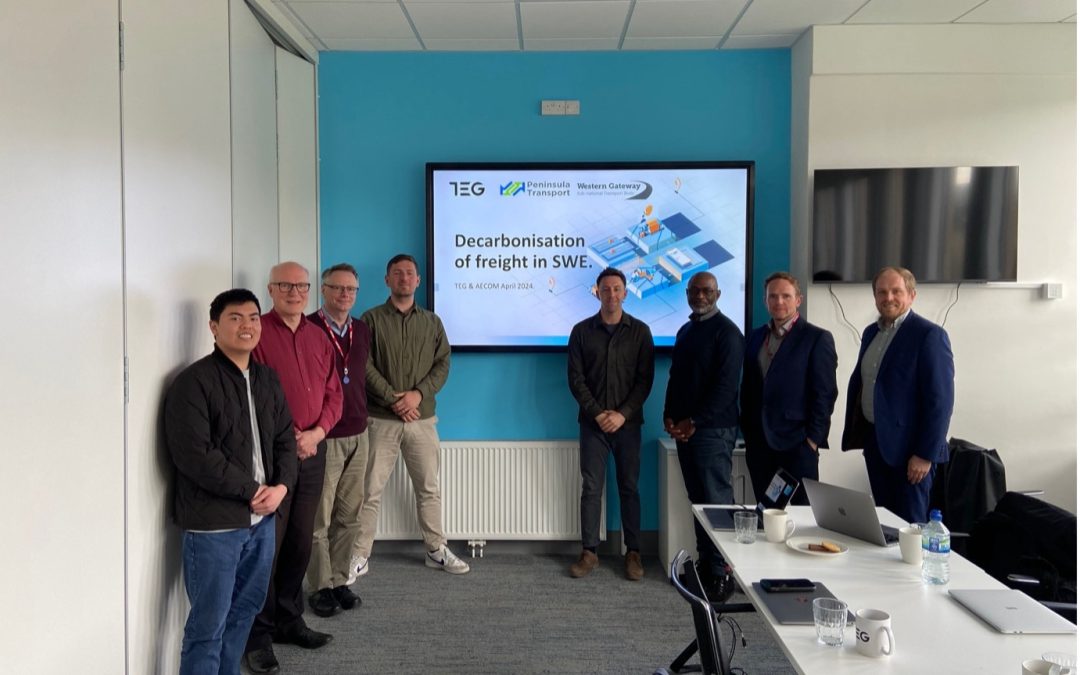Did you know that almost a third of road freight journeys nationally are made using empty vehicles?
We are pleased to be working with our partnering STB, Western Gateway on a new freight backloading trial which aims to reduce the number of Heavy Goods Vehicles (HGVs) running empty on their return journeys.
The “Decarbonisation of Freight in South West England” project aims to reduce emissions while supporting economic resilience in the region. With Transport Exchange Group (TEG), a key enabler, the project provides participating hauliers with access to essential tools that streamline operations, reduce empty haulage miles and contribute to a greener economy which in turn boosts regional economic resilience.
Small and medium-sized haulage businesses can apply for fully funded access to the Transport Exchange Group’s (TEG) Haulage Exchange (HX) online platform, which allows hauliers to find backloads and optimize vehicle usage, minimizing empty journeys and helping the sector progress towards a net-zero emissions future.
The state-of-the-art load-matching and route-planning tools allow local hauliers to advertise available vehicle capacity and post estimated empty locations ahead of journey completion. The platform then alerts them to potential return loads nearby, helping maximize vehicle utilisation and reduce fuel consumption.
The trial provides hauliers with free of charge access to the platform, with the overall aim of reducing the number of wasted freight miles.
Key benefits of the initiative include:
- Improved Vehicle Utilisation: Fewer empty miles and better capacity management help hauliers achieve operational efficiency.
- Economic and Community Growth: By keeping revenue within local communities and providing businesses with enhanced tools, the project supports regional economic stability and growth.
- Reduced Carbon Footprint: More loads being delivered with fewer journeys reduces the sector’s overall fuel consumption, emissions and carbon footprint.
- Through this initiative, participating haulage operators can also connect with other businesses across the UK and Europe, gaining access to additional tools such as real-time tracking, electronic Proof of Delivery (ePOD), electronic quoting, payments, and finance options.
Once signed up to the TEG service, hauliers can check for freight loads from where they have just unloaded cargo. Not only does this reduce empty running for freight deliveries, but it also allows carriers to generate additional revenue.
This is a significant step towards increasing sustainability in the logistics sector and a huge opportunity to address those unallocated loads in peninsula.
The scheme is already in progress with some hauliers and the collaboration has demonstrated notable results in its initial months:
• 37 loads matched over a total of 5,464 miles
• Over £44,000 in added value to local hauliers
• A reduction of 4,822 kg of CO2
Despite these early successes, 1,352 loads remained unallocated since the initiative began, highlighting the significant potential for expansion and in turn reducing emissions, if there is now a greater uptake with hauliers to participate in the project as part of this new trial.
Peninsula Transport and Western Gateway STBs are working in partnership to address the freight challenges, opportunities and priorities for the south west over the next 30 years to 2050. Our forward thinking joint freight strategy aligns closely with the UK Government’s Future of Freight Plan. One pressing issue the strategy addresses is the high percentage of haulage vehicles running empty.
Find out more about this ongoing project and its difference in the industry – https://bit.ly/3YmUpqK

